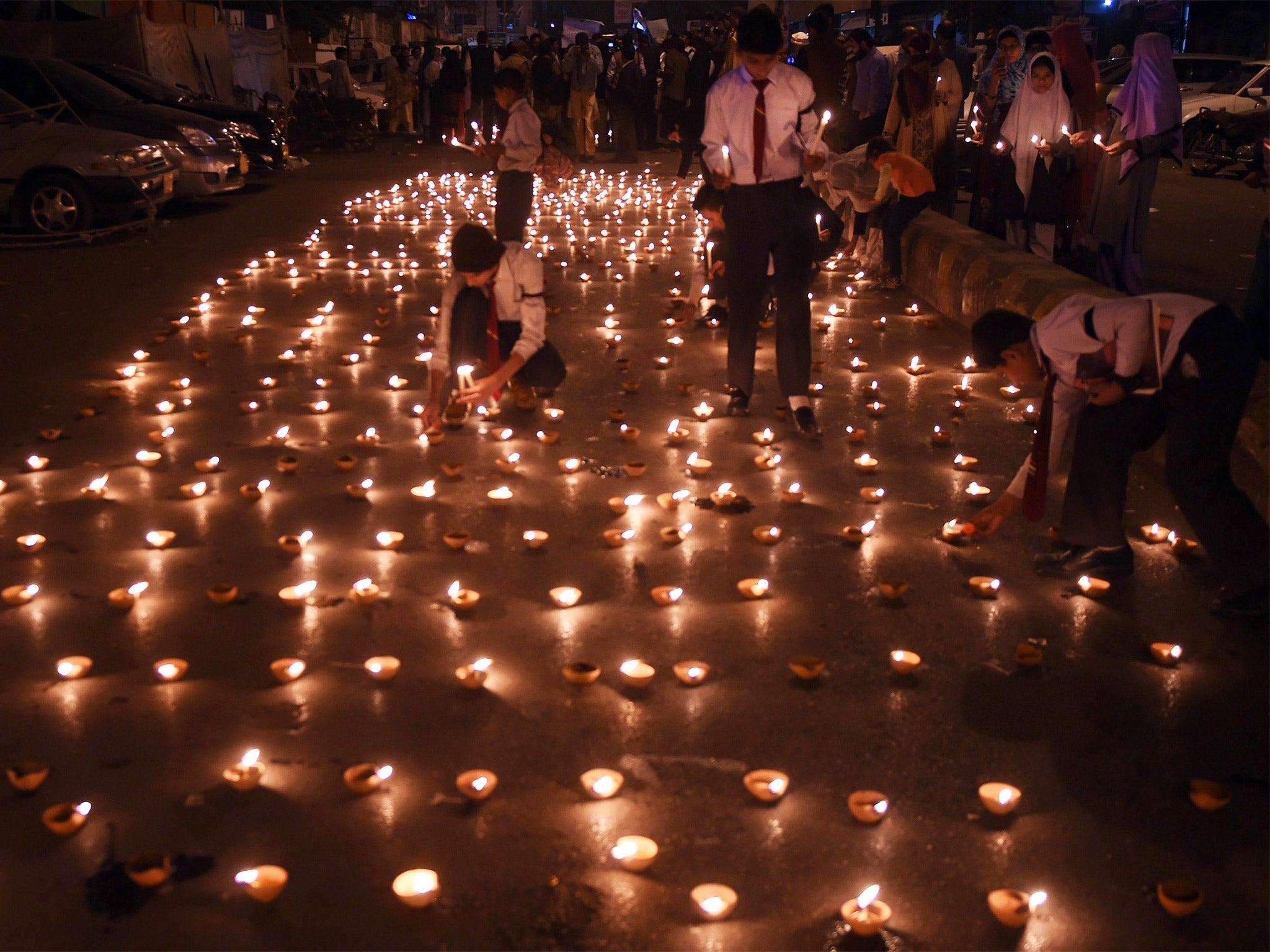Peshawar school attack: An act of barbarity that could prove a turning point in Pakistan's battle against the Taliban
If the plan was to weaken the government's resolve, it seems not to have worked

Your support helps us to tell the story
From reproductive rights to climate change to Big Tech, The Independent is on the ground when the story is developing. Whether it's investigating the financials of Elon Musk's pro-Trump PAC or producing our latest documentary, 'The A Word', which shines a light on the American women fighting for reproductive rights, we know how important it is to parse out the facts from the messaging.
At such a critical moment in US history, we need reporters on the ground. Your donation allows us to keep sending journalists to speak to both sides of the story.
The Independent is trusted by Americans across the entire political spectrum. And unlike many other quality news outlets, we choose not to lock Americans out of our reporting and analysis with paywalls. We believe quality journalism should be available to everyone, paid for by those who can afford it.
Your support makes all the difference.The attack on the Army Public School in Peshawar may come to be seen as a turning point in the long-running conflict between the Taliban and the Pakistan government. However, that the Pakistan Taliban felt compelled to inflict the level of barbarity witnessed in the attack reflects the fact that the turning-point may already have taken place.
The long-standing charge against Pakistan is that it picks and chooses between “good” and “bad” Taliban. The Pakistan Taliban, formed in 2007, are “bad” Taliban because they target the Pakistani state. However, other groups that share the ideology but which have different targets have been seen as “good” Taliban. Thus, Islamist groups that operated in Indian Kashmir or in Afghanistan served as tools of Pakistan’s foreign policy.
Why would Pakistan maintain ties, at whatever level, with the Afghan Taliban, given that both Afghan and Pakistan Taliban swear allegiance to the same leader, Mullah Omar? The answer lies in the notion of strategic depth. In the 1990s, close ties between the Afghan Taliban and Pakistan meant that Pakistan could concentrate its military presence on its border with India. The idea that Pakistan’s interests were best served by a pliant pro-Pakistani government in Kabul became received wisdom.
Over the past couple of years, however, this thinking has reversed. What if the Pakistan Taliban were to have “strategic depth” in Afghanistan? While they have different objectives, the two Talibans clearly have an accommodative attitude to each other. Thus, Pakistan’s interests would be best served by maintaining links with the Afghan Taliban in the hope that they would apply some pressure on the Pakistan Taliban.
US and Afghan policy was also responsible for this thinking. The US targeted the Afghan Taliban in Afghanistan, but did not go after groups that were not destabilising Afghanistan – most notably the Pakistan Taliban. Worse still, elements of the Afghan government even cultivated links with the Pakistan Taliban. The election of Afghan President Ashraf Ghani allowed for change. Unlike his predecessor, who was quick to criticise Pakistan for Afghanistan’s woes, he appears to recognise that Pakistan and Afghanistan need to work together against common enemies.
In this context, the attack on the Peshawar school can be seen as a sign of weakness rather than strength – the logic, such as it is, can only have been that by demonstrating new levels of barbarity the attack would weaken resolve within Pakistan. One of the problems Pakistan has faced over the past decade is that the debate has shifted towards the Islamists because they have killed so many liberal voices in Pakistan. Even ostensibly liberal politicians have supported the idea of peace talks with the Pakistan Taliban out of understandable self-preservation.
However, if the plan was to weaken resolve, it would not seem to have worked. The day after the attack, Pakistan’s Prime Minister, Nawaz Sharif, stated that Pakistan no longer distinguishes between good and bad Taliban. The same day, the army chief, Raheel Sharif visited Kabul and announced that Pakistan and Afghanistan would launch joint operations against militants. Down the line, a new set of challenges will need to be overcome. Pakistan’s approach to the Afghan Taliban will come under greater scrutiny, not least because its leadership is presumed to be based in Pakistan. Neither Afghanistan nor Pakistan has a good track record in introducing state structures into formally ungoverned spaces following military action.
Given recent history, there is understandable scepticism about Pakistan’s thinking and doubts about its next steps. But there is clear potential for a new approach. If the Taliban are to be tackled, greater co-ordination between Afghanistan and Pakistan is at least a pre-requisite first step.
Join our commenting forum
Join thought-provoking conversations, follow other Independent readers and see their replies
Comments